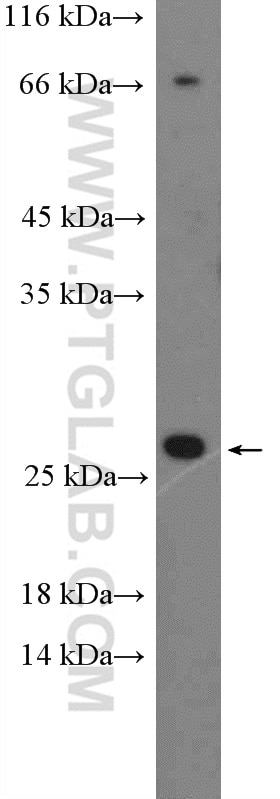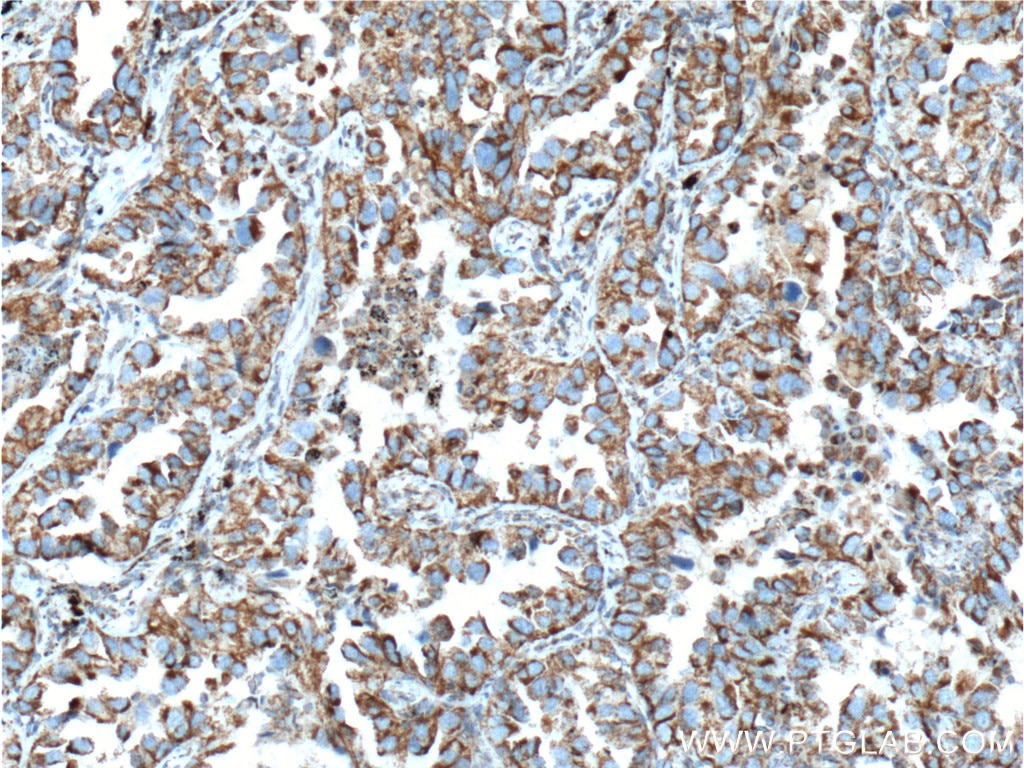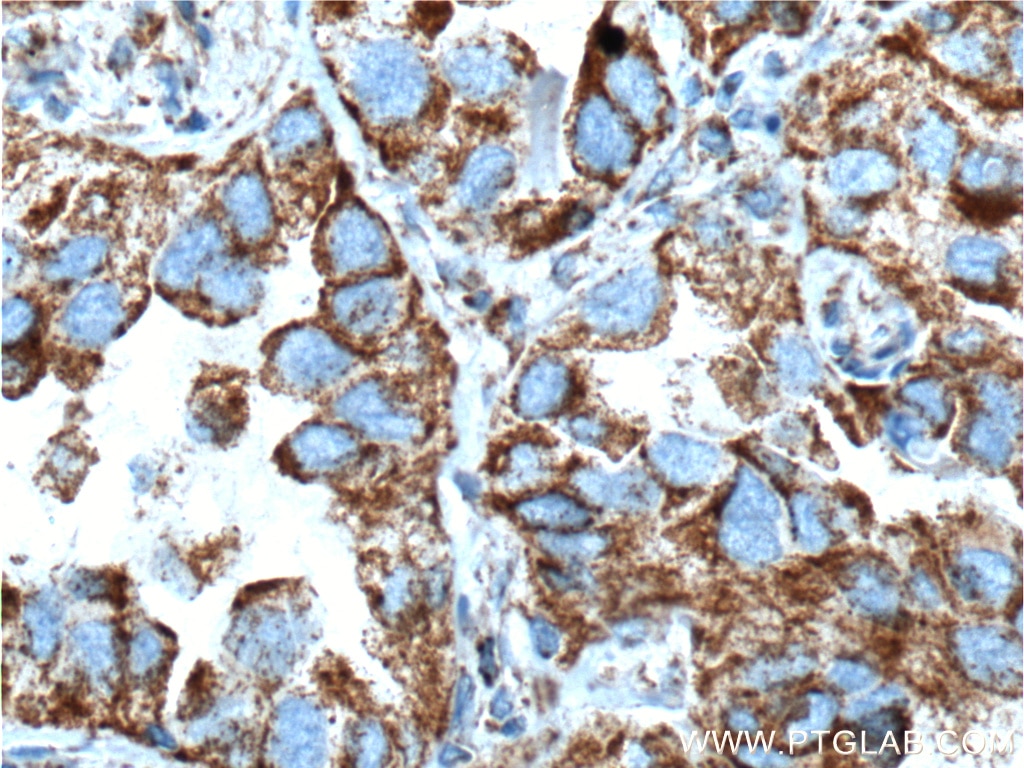Validation Data Gallery
Tested Applications
| Positive WB detected in | MCF-7 cells |
| Positive IHC detected in | human lung cancer tissue Note: suggested antigen retrieval with TE buffer pH 9.0; (*) Alternatively, antigen retrieval may be performed with citrate buffer pH 6.0 |
Recommended dilution
| Application | Dilution |
|---|---|
| Western Blot (WB) | WB : 1:200-1:1000 |
| Immunohistochemistry (IHC) | IHC : 1:50-1:500 |
| It is recommended that this reagent should be titrated in each testing system to obtain optimal results. | |
| Sample-dependent, Check data in validation data gallery. | |
Published Applications
| WB | See 78 publications below |
| IHC | See 30 publications below |
| IF | See 19 publications below |
Product Information
18978-1-AP targets TGF Beta 1 in WB, IHC, IF, ELISA, Cell treatment applications and shows reactivity with human, mouse, rat samples.
| Tested Reactivity | human, mouse, rat |
| Cited Reactivity | human, mouse, rat, pig, canine, monkey, bovine, sheep |
| Host / Isotype | Rabbit / IgG |
| Class | Polyclonal |
| Type | Antibody |
| Immunogen |
Peptide 相同性解析による交差性が予測される生物種 |
| Full Name | transforming growth factor, beta 1 |
| Calculated molecular weight | 44 kDa |
| Observed molecular weight | 25 kDa |
| GenBank accession number | NM_000660 |
| Gene Symbol | TGFB1 |
| Gene ID (NCBI) | 7040 |
| Conjugate | Unconjugated |
| Form | |
| Form | Liquid |
| Purification Method | Antigen affinity purification |
| UNIPROT ID | P01137 |
| Storage Buffer | PBS with 0.02% sodium azide and 50% glycerol{{ptg:BufferTemp}}7.3 |
| Storage Conditions | Store at -20°C. Stable for one year after shipment. Aliquoting is unnecessary for -20oC storage. |
Background Information
TGFB, also named as LAP and TGFB1, is a multifunctional peptide that controls proliferation, differentiation, and other functions in many cell types. TGFB acts synergistically with TGFA in inducing transformation. It also acts as a negative autocrine growth factor. Dysregulation of TGFB activation and signaling may result in apoptosis. Many cells synthesize TGFB and almost all of them have specific receptors for it. TGFB positively and negatively regulates many other growth factors. It plays an important role in bone remodeling as it is a potent stimulator of osteoblastic bone formation, causing chemotaxis, proliferation and differentiation in committed osteoblasts. It is highly expressed in bone. Mutation of TGFB are the cause of Camurati-Engelmann disease (CED) which known as progressive diaphyseal dysplasia 1 (DPD1). Full length, inactive 44 kD TGFB1 is cleaved into mature TGFB1 (13 kD). TGFB1 also homodimerizes and heterodimerizes with TGFB2, so there is potential for multiple different band sizes in WB (12, 25, 45 to 65 kDa).
Publications
| Species | Application | Title |
|---|---|---|
Circulation Proefferocytic Therapy Promotes Transforming Growth Factor-β Signaling and Prevents Aneurysm Formation. | ||
Biomaterials A nano-conductive osteogenic hydrogel to locally promote calcium influx for electro-inspired bone defect regeneration | ||
Br J Dermatol Intense Foxp3(+) CD25(+) regulatory T cell infiltration is associated with high-grade cutaneous squamous cell carcinoma and counterbalanced by CD8(+) /Foxp3(+) CD25(+) ratio. | ||
Proc Natl Acad Sci U S A miR-182 targeting reprograms tumor-associated macrophages and limits breast cancer progression. | ||



